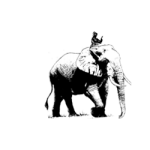 Who would you rather have flying US Airways 1549 on January 15, 2009, a 58 year old Sully Sullenberger, or a 28 year old Sully Sullenberger? The odds are that your best chance for survival, had you been on that flight, is the mature Captain Sullenberger.
Who would you rather have flying US Airways 1549 on January 15, 2009, a 58 year old Sully Sullenberger, or a 28 year old Sully Sullenberger? The odds are that your best chance for survival, had you been on that flight, is the mature Captain Sullenberger.
In her latest book, The Secret Life of the Grown-Up Brain: The Surprising Talents of the Middle-Aged Mind, Barbara Strauch provides the foundation for my hunch. As she points out, we are all aware of forgetting names, losing our train of thought, desperately searching for the right word, and the frustration of not remembering the things one normally remembers, after we turn 40. Senior moments? We quietly ask ourselves, “Are these the first signs of Dementia?” Scary.
There’s good news for the overwhelming majority of us over 40: It’s not a disease state; it’s a life process. As Ms. Strauch reports, some capacity is diminished as we age, but other capacities are vastly improved. In our middle-aged years, we process information better, our cognitive functions related to inductive reasoning improve over the younger brain, we have a better understanding of both sides of an argument, we make better financial decisions, our social expertise improves, and, with exercise, we can even grow new brain cells.
Many organizations overlook the development potential of their middle-aged workers, focusing instead on new and younger employees. This is short-sighted and ignores a valuable resource: Middle-aged workers comprise roughly half the workforce. It makes no more sense to limit training and development to those 20-39 than it does to limit it to those 40-65. However, training opportunities should be tailored to the needs of each group. Particularly in this age of expanding knowledge-workers, maximizing middle-age employees’abilities to synthesize information, exposing them to new ideas, enhancing their problem-solving approaches, assessing their performance regularly and providing new challenges, and even encouraging them to exercise regularly will benefit the organization’s performance. People in the middle-aged group work differently than their younger peers – organizations should take full advantage of that.
Sully Sullenberger may have said it best to Katie Couric, “One way of looking at this might be that for 42 years, I’ve been making small, regular deposits in this bank of experience: education and training. And on January 15 the balance was sufficient so that I could make a very large withdrawal.” I know who I would want at the stick of that plane, and not because I know the outcome.